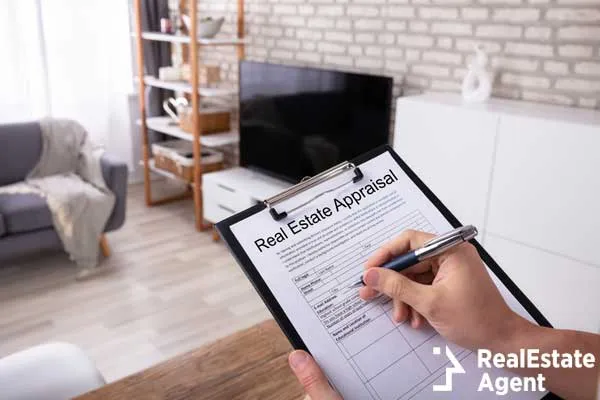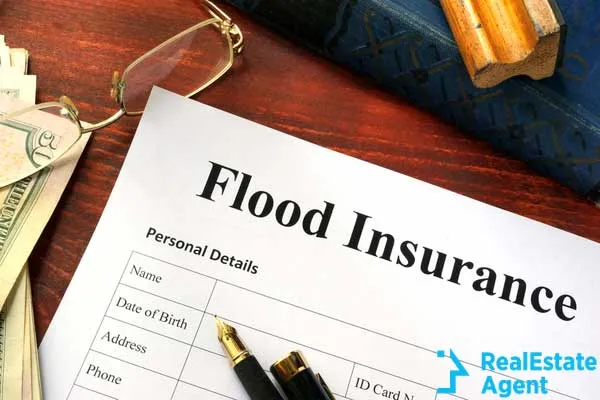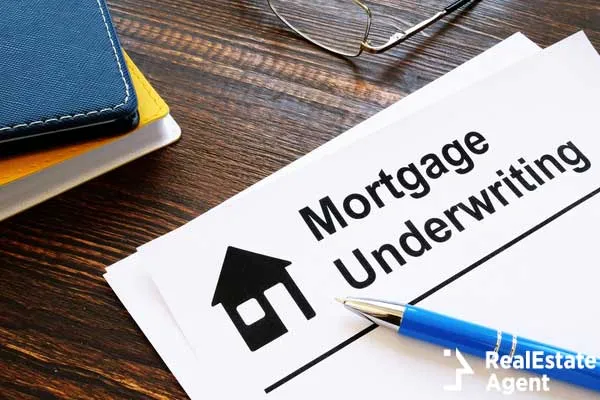
Most homebuyers know it’s a lot easier to go house hunting with an approved loan in hand. However, the initial visit to the lending institution is just the first step; while looking at properties in your price range with your real estate agent, the lender is putting your application through its paces in a series of steps known as underwriting.
Especially rookie home hunters might get easily lost in the labyrinth of complex terminology. Real estate questions and answers will provide you with a detailed list of such keywords that are explained plainly and disentangled. Hence, next time you embark on the confusing journey of meeting your bank and negotiating with your local real estate agent, you will already have a head start.
Past mistakes to learn from
Only those living on the moon during the past 15 years did not hear about the Great Recession (2007-2008), also known as the subprime mortgage crisis. In short, since the housing business had been booming, banks started granting loans to people who were less likely to pay them back. The banks also charged more money for loans through higher interest rates. The abrupt drop in private property prices implied that many mortgage applicants had none whatsoever or a negative amount of money invested in their homes. In other words, their houses were worth less than their mortgages.
This created a timed housing bubble ready to burst. Owners could no longer afford to pay their debts, and the banks intervened and unfortunately foreclosed their homes. These homes, however, were not worth the amount of money they had been sold for. Everybody lost ...
The event is considered the second greatest economic decline since the Great Depression in the 1930s. The recession affected many US citizens leading to losing their homes (an average of 5 million yearly) and jobs (approximately 8 million), as well as wrecking their businesses (around 2.5 million closed). The financial speculation resulted in the average US housing prices dropping by over 20% from their peak two years earlier. Over the next couple of years, the phenomenon escalated, and by September 2010, 23% of all American homes were worth less than the loan amount on mortgage itself.
Step One: Verification
In the aftermath of the housing crisis, the Consumer Financial Protection Bureau (in short, CFPB, an independent agency created by the United States government in charge of protecting the rights of consumers in the financial sector) enacted new regulations to protect borrowers from buying more houses than they could afford. The backbone of these regulations involves the lender double-checking everything on your loan application for accuracy.
CFPB, still in effect, proved to be an efficient institution in safeguarding purchasers’ rights. “From its creation until 2017, the CFPB "has curtailed abusive debt collection practices, reformed mortgage lending, publicized and investigated hundreds of thousands of complaints from aggrieved customers of financial institutions, and extracted nearly $12 billion for 29 million consumers in refunds and canceled debts. (source: Wikipedia)”
As a result of CFPB’s amendments, the system became more perspicuous. Members of the lending institution's staff, known as underwriters, are responsible for this double-checking task, including reviewing your application and supporting documents, verifying your income, and more. Self-employed home buyers go through an even more rigorous screening. You can also expect a thorough credit check.
What lies beneath a credit check?
You can apply for a credit check, but sometimes, certain institutions don’t even need your consent to do an in-depth credit history investigation on you. They, however, will always require a well-rounded and legitimate reason to make this inquiry, for example, when you apply for a loan at their institution.
To get a credit check to apply for a mortgage, you will need a credit report first. The report is usually compiled based on your credit history in the last 6 years. It grants your bankers an overview of your finance management, for instance, how reliable you are at paying a mortgage, loans, phone contracts, gas, electricity, and water bills, your general credit card history, etc. Even with bad credit, you can still receive a loan.
Step Two: Appraisal

Loan analysts will rigorously investigate the real estate you end up choosing. Later an appraisal is done to ensure it is considered to have a similar value to other homes in the area. The independent real estate appraisal done by the bank will be a determining factor in the rate and terms of your mortgage. A licensed appraiser will physically inspect the real estate property and offer an expert's estimated value. The appraisal cost is paid by the prospective home buyer and runs between $300 and $500.
Step Three: Title Search and Insurance
The appraiser is responsible for assessing the physical side of your house. A title company is responsible for evaluating its legal history. Your lender won’t approve a loan against a house that may have claims on it. The title company starts with a title search to see any obstacles to its sale, such as unforgiven mortgages, claims, liens, easement rights, zoning ordinances, pending legal action, unpaid taxes, and restrictive covenants. In the end, the title insurer will issue a policy that guarantees the accuracy of their evaluation, and you can then obtain title insurance to satisfy the lender.
Don’t get caught in the cobweb of legal terms! An easement right is the right to use someone else’s property for a specific reason. You may encounter the term also as property easement, meaning a title to a certain property remains with the landowner, but another person or legal entity is given the right to use that land for a specific purpose.
Zoning ordinances set how you can use private property in certain geographical areas, or regions. In the city, there are three areas: residential, commercial, and manufacturing zones. The ordinances define and restrict what type of construction, design, quality, and development private properties can have in that zone.
Another bump on the road in acquiring a house could be restrictive covenants. It covers a set of restrictions that a buyer must or must not do on their private property. For instance, you might be forbidden to raise livestock on specific lands or to maintain the excellent reputation, and looks of a neighborhood, you must mow the lawn regularly. We strongly recommend you investigate these covenants, and follow these guidelines since the Homeowner’s Association can and will take legal actions to correct your wrongdoings.
Step Four: Flood Certification

Flood insurance is often not part of standard homeowners insurance policies. Suppose you believe your property is in a flood zone. In that case, your lender will likely hire a specialist to analyze your prospective real estate property and create a report called a flood certification. If you're in a flood zone, you'll have to purchase flood insurance.
Can I receive a loan for a house in a flood zone?
Yes, you can. And the good news is that your house will most probably cost less than your average new home. The surrounding area in flood zones can be dreamlike. Most commonly, you will have a view of a waterfront or beachfront. The Federal Emergency Management Agency (FEMA) determines whether a specific geographical area is a flood zone or not. The agency introduced several flood zone labels, from moderate- to low-risk areas, high-risk zones, and undetermined risk territories. In high-risk designated flood areas homeowners are required to buy flood insurance, and if it’s the case, it can get pretty expensive.
Being a homeowner in a flood zone can be worth your while. Nonetheless, you must know and comprehend the risks, and hazards living in such an area implies. You must also have the means to pay for both the flood insurance and a mortgage.
Step Four: Survey
The last thing your lender may do before signing off and declaring the home successfully underwritten is to ask for a professional survey to ensure that the title’s description of the real estate property boundary lines is accurate. Boundaries can be visible like roads, fences, or even watercourses. In rare cases, they are not well-defined. You will have to have the limits of your private property precisely outlined. Establishing proprietorship is quintessential for fear your neighbors or a third party should file legal litigation to establish claims over your property. If properly determined, even Google Maps can show these boundaries to you.
While the loan underwriting is in progress, you can help by providing any useful documentation as soon as possible. In addition, you can contact your lender, and real estate agent to check on your loan status. Thirdly, keep records of every conversation you have with your banker. Hopefully, your loan will be successfully underwritten and approved, so you can move forward with closing on your brand new home!
Conclusion: don’t let the underwriting process be a nuisance!

The outcome of a loan application process may not always turn out to be favorable. According to 2018 statistics compiled by the Consumer Financial Protection Bureau, one in every ten applicants is denied a loan. Recurrent motives of denying a loan are insufficient cash reserve, low credit score, and, generally, poor credit check results.
How long does it take from underwriting to closing, you may wonder. The series of actions by which mortgage lenders analyze your credit history, overall scores, and tax returns before you are granted a home loan can take two to three days. More generally speaking, it takes over a week for a lender to finalize the underwriting (2019 estimate).
In addition, the COVID-19 pandemic seemingly made things worse. With the economy in recovery, there is lower credit availability. It implies that it is more difficult to qualify for a loan. Still, there are some banks with an inclination to ease tight credit requirements. However, if you have a poor credit score, it will be challenging to find an open-minded lender.
We wish you the best of luck in finding the most advantageous mortgage!
If you consider this article helpful, share it on your social media! And, as always, we are open to suggestions and comments!
















Have a question or comment?
We're here to help.